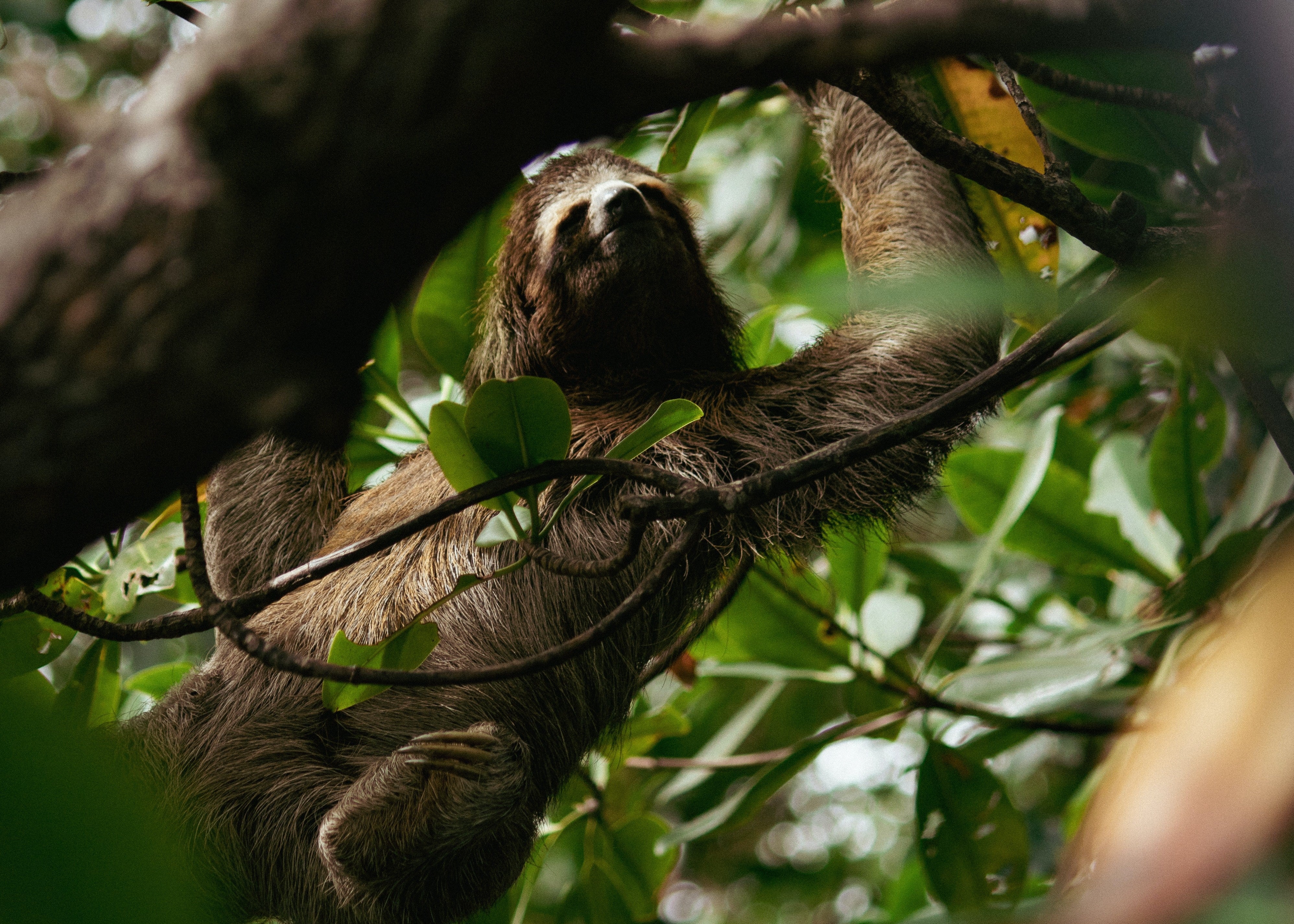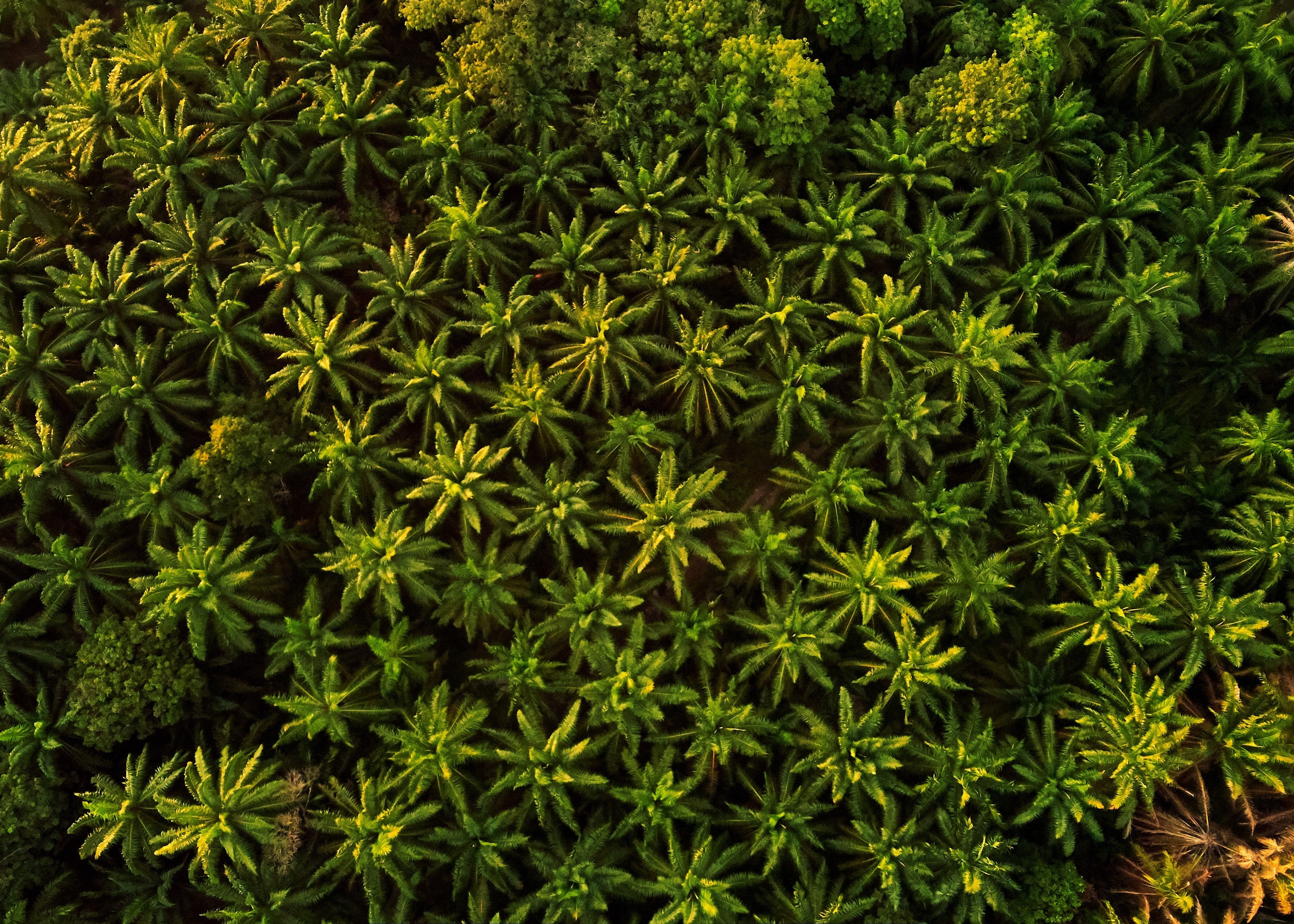How, indeed.
We know there are plenty of environmental issues our precious Earth is constantly facing, but one looms particularly large. Its name?
Deforestation.
This widespread clearance of forests has severe consequences for everybody and everything - humanity, the animals habitat loss, and the planet itself. We may not realise how big an issue this actually is.
Different sources show different data, but the fact remains - about one football field of the rainforest disappears every second. That's enough to make it one of the biggest environmental problems and issues.
Fine, some say it's 6 while others could swear it's 27 every minute. Be that as it may, just let that sink in.
Understanding Deforestation
Deforestation, at its core, is nothing more but a large-scale removal of forests around the world, often to make way for agriculture, logging, urbanisation, and mining. If we want to get more specific, it's mostly about timber production or clearing of land for palm oil or soy production.
Large-scale breeding of farm animals is also among the most common reasons for deforestation. Of course, forests can disappear naturally, but human activities are still the number one driver behind this crisis, hands down.
There are so many consequences of deforestation and all of them pose a huge threat to the environment, biodiversity, and our well-being – just to name a few.
What It Does to Us and The Planet?
The repercussions of deforestation are vast and touch every aspect of our lives. First and foremost, it has a devastating impact on biodiversity. Forests are rich ecosystems that house millions of plant and many species of animals.
As we clear these massive stretches of trees, we take their homes and natural habitat away, increasing the amount of endangered species. In extreme cases, this can lead to extinction.

The balance of nature is a delicate matter. Sometimes, we seem to forget how easy it is to disrupt it.
What else?
Well, climate change. Deforestation has a huge impact on that as well.
Trees act as vital carbon "sinks", which have the unique ability of absorbing carbon dioxide from the atmosphere and storing it. By cutting down forests, we release this stored carbon right back into the atmosphere, exacerbating the greenhouse effect and also - contributing to global warming.
Another issue is water cycle disruption, which happens when there's an insufficient number of trees around.
Trees play a critical role in maintaining soil moisture and regulating the flow of water. Without them, soil erosion increases, which in turn can lead to landslides while water quality in rivers and streams takes a serious hit. It's not hard to guess what happens next - agriculture suffers, communities suffer, and ecosystems suffer.
Far from ideal.
Recent Data
Recent data paints a bleak picture of the deforestation crisis. According to the Food and Agriculture Organization (FAO), the world lost an estimated 10 million hectares of forest annually between 2015 and 2020.
Regions like the Amazon rainforest, Southeast Asia, the Congo Basin, and Central America have witnessed significant losses, effecting entire ecosystems.
Let's put those numbers into perspective. At that rate, it is estimated that we cut down 15 to 18 million hectares of trees every year. That means a forest the size of Belgium completely disappears from the face of the Earth.
Also, according to some reports, between 2001 to 2018 - we lost a forest area larger than India.
Sounds bad, doesn't it?
How It Changed
Admittedly, deforestation has been an ongoing problem throughout history. At the end of the day, we've always known timber is not exactly a renewable resource. The thing is, the pace has accelerated in recent decades due to population growth and incredibly rapid industrialisation.
We used to clear forests for agriculture, and while this remains a major factor to this day, there are new factors that add to the problem. The demand for timber, paper products, and palm oil has changed dramatically, which has fuelled large-scale logging and plantation activities.

Let's not forget the cities. New buildings emerge every day while cities grow and expand as more and more people come flooding in to live in them.
That requires space - a space very often occupied by forests and their ecosystems. Since they're in the way, we end up cutting down a healthy forest to accommodate our needs.
Why Is Deforestation Happening?
We often hear that it's important to first fully understand the problem to find an effective and suitable solution. To that point, let's take a closer look at the main factors behind deforestation:
-
Our everyday products: Yes, the famed palm oil and soy with tons of fans around the globe and numerous health benefits. Unfortunately, not for the planet.
-
Agriculture: Crops and livestock require more land. This has led to extensive deforestation, especially in developing countries.
-
Logging and Timber Industry: The demand for wood products drives large-scale logging, especially in tropical rainforests.
-
Infrastructure Development: Urbanisation and population growth require the expansion of cities. To do that, more often than not, it simply means one thing - the clearance of forests.
-
Mining: The quest for valuable resources, unfortunately, drives deforestation in regions rich in minerals, oil, and gas.
-
Unsustainable Practices: Illegal logging, forest fires, and unsustainable land-use practices contribute to forest degradation and loss.
Bamboo - Our Biggest Ally
In the battle against deforestation, bamboo emerges as a powerful ally.
It has plenty of unique properties that make it an eco-friendly alternative to traditional timber sources. Unlike trees, bamboo is a fast-growing plant that reaches maturity within just a few years. This rapid growth allows for more frequent harvests, making it a highly renewable resource.
What else? Well, bamboo also has this remarkable ability to sequester carbon. By absorbing large amounts of carbon dioxide from the atmosphere, bamboo helps combat two of the biggest environmental concerns - the greenhouse effect and global warming.
It can also be used in various sectors – from construction and textiles to bioenergy production.
In construction, its durability and flexibility make it a sustainable substitute for hardwoods. We can use it to build houses, bridges, and furniture. This way, the demand for hardwood could decrease. Bamboo is already a hit in many modern bathroom spaces.
The textile industry can benefit from bamboo as well. Bamboo fibres can be transformed into soft and breathable fabrics, offering a sustainable alternative to resource-intensive cotton.

That’s why bamboo towels and bamboo bath sheets are such staples in the world of sustainable products.
Lastly, bamboo biomass can be converted into biofuels.
Now, what does it mean exactly? Basically, we can use it to make a renewable and carbon-neutral energy source. Of course, it’s not so easy and straightforward, but it would help us rely less on fossil fuels – the extraction of which is also driving deforestation.
Read more on why bamboo is a great environmental option.
What We Can Do
Finally, let’s explore the ways and methods we can use to make things better. Stopping it completely is a difficult goal, no doubt. We don’t have to go that big – just slowing it down would be huge for the whole planet.
So, what can we do?
-
Make sustainable choices: Our purchasing choices matter. And we need to be aware of that. A natural bath mat can be more expensive than one made of polyester, but it’s better for the planet. Linen sheets cost more, but linen is one of the least harmful materials, known to reduce carbon footprint.
-
Plant more trees: This one’s quite obvious but needs to be said regardless. There are plenty of initiatives organised by different communities we can join.
-
Going paperless: We have this option now. The technology is here. A growing number of companies decide to go fully digital. A step in the right direction.
-
Buy certified products: Whenever you buy a paper or wood product, make sure it’s certified by trustworthy organisations, like Forest Stewardship Council (FSC) or Sustainable Forestry Initiative (SFI).
-
Raise awareness: You can make a change in your community or even in your family or small group of friends – that’s enough. We don’t really think about these things, but conversations can lead to action.
-
Quality over quantity: Single-use products are a big problem – try to limit their use to the absolute minimum. Sometimes we also get cheaper products of worse quality, just to save some money. They may not be single-use, but it’s close.
-
Recycle and buy recycled: Everyone knows how important recycling is, but trying to buy recycled products or recyclable ones? We don’t really give it enough attention. An absorbent bath mat made of diatomite is a prime example.
Our Fight
Deforestation is still a pressing global concern, with profound implications for the planet and all of its inhabitants - not just us.
We saw the recent data and the alarming numbers. If we don't take the necessary steps now and protect our forests worldwide, very soon it'll be too late. We're applying unprecedented strain on the planet. And there is no planet B.
By understanding how big an issue deforestation is, embracing sustainable practices, and promoting collective action - we can make a difference.
Conservation efforts, sustainable land use, strengthened law enforcement, and empowering local communities all play pivotal roles in the fight against deforestation. Let's not forget bamboo, perhaps not a long-term solution, but still, a viable option, with plenty of unique properties we could further explore.
Together, we can stop trees from disappearing, preserving the natural wonders of our world and securing a thriving environment for all living beings - after all, the planet doesn't belong to us alone. It must thrive through our own lives and future generations to come.

